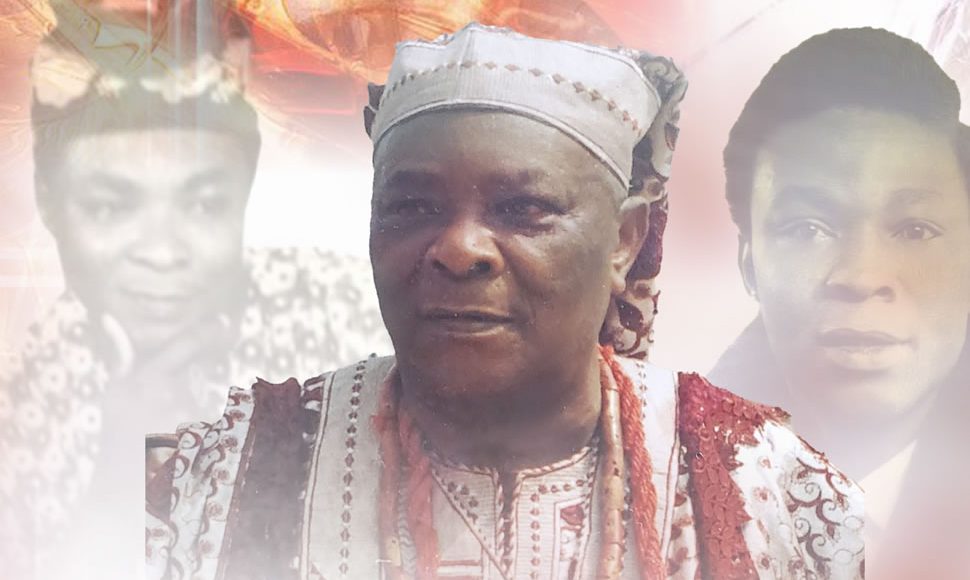A Man for All People: A Legacy of Hope
By Adedayo A. Alli, Esq. | Jurimetrics Law Firm
I had the honour and privilege of not just bearing the name “Alli,” but of living under the roof of one of the most extraordinary men I have ever known, my grandfather, Oba Abdul Razak Ayedun Alli, the Owarisa of Ilowa, fondly remembered as The Man Rasco.
He wasn’t just a royal father. He was a father of vision, hospitality, discipline, and unity. But above all else, one truth stands out to me as I reflect on his legacy: he was a detribalized Nigerian.
Rasco embraced everyone. Whether you were Yoruba, Igbo, Hausa, Nupe, Itsekiri, or even a foreigner, you had a place in his world. His home was open to all, not merely as a formality, but with warmth and honour. He didn’t ask about the tribe before showing kindness. He didn’t judge culture before offering help. Instead, he lived a life that preached one sermon: We are one humanity. During the Biafran war, when fear and suspicion reigned, he protected the vulnerable. He gave refuge to the family of Sir Emmanuel Monye, risking his own safety to preserve another life. That is not just generosity, it is courage anchored in conviction.
This kind of detachment from tribal bias is rare and revolutionary. In a country and a continent often fractured by ethnicity, class, and religion, Rasco chose a different path. He believed that peace was not the absence of conflict, but the presence of justice, kindness, and belonging. He didn’t just say “we are one,” he lived it at a time when such thinking was not fashionable or convenient. He was, in every sense of the word, a man for all people.
If the world were full of men like Rasco, it would be a much better place. Imagine societies led by people who value humans over heritage, people who see strength in diversity and not danger. Rasco’s legacy shows that unity is not a dream, it’s a discipline. One kind act, one open door, one belief in a stranger’s worth these are how communities are built. He showed us that a single man with the right heart can shape the destiny of a town, a people, and a generation.
I often say not just as a lawyer or cultural journalist, but as his grandson his greatest achievement wasn’t the bread, the buildings, or the crown. It was his heart.
A heart that made Osogbo feel like home to thousands.
A heart that turned Ilowa into a recognized cultural beacon.
A heart that never saw a tribe before humanity.
As a child, I lived under his roof and saw firsthand how structure and discipline created greatness. Rasco didn’t raise us with entitlement, even though we were born into wealth. He used to say: “Even though you’re born into wealth, you have to earn it.” These weren’t empty words. They were a code of life. He gave us tasks, responsibilities, and expectations. We cooked. We cleared land. He made sure that the values we inherited were stronger than any riches he could give.
He was principled and exacting yet joyful, generous, and stylish. He didn’t only host kings; he made everyday people feel like royalty.
Artists like Mama Rainbow (Mrs. Idowu Philips) remember him not as a mere friend, but as a father to the community. He didn’t differentiate between the celebrated and the unknown; he simply showed up for people.
I still hear the echoes of a saying that went around: “There is Osogbo, and then there is Rasco.” That wasn’t flattery, it was fact. Rasco was the first to build a guest house in Osogbo. He brought electricity to Ilowa when it wasn’t his duty. He roofed schools, mentored leaders, fed the poor, empowered children, and reshaped what leadership meant in his generation.
And in my own words and I say this with full conviction:
“He left an indelible mark as an individual in his time, against all odds.”
As I now walk my own path in law, in media, in advocacy I carry his lessons with me like statutes. They guide me, shape me, and remind me that power is not about position it is about purpose.
Thank you, Baba Rasco. You didn’t just raise kings. You raised communities.
You raised Nigeria. May your legacy live on not just in stone and story, but in the values you planted in us all.


